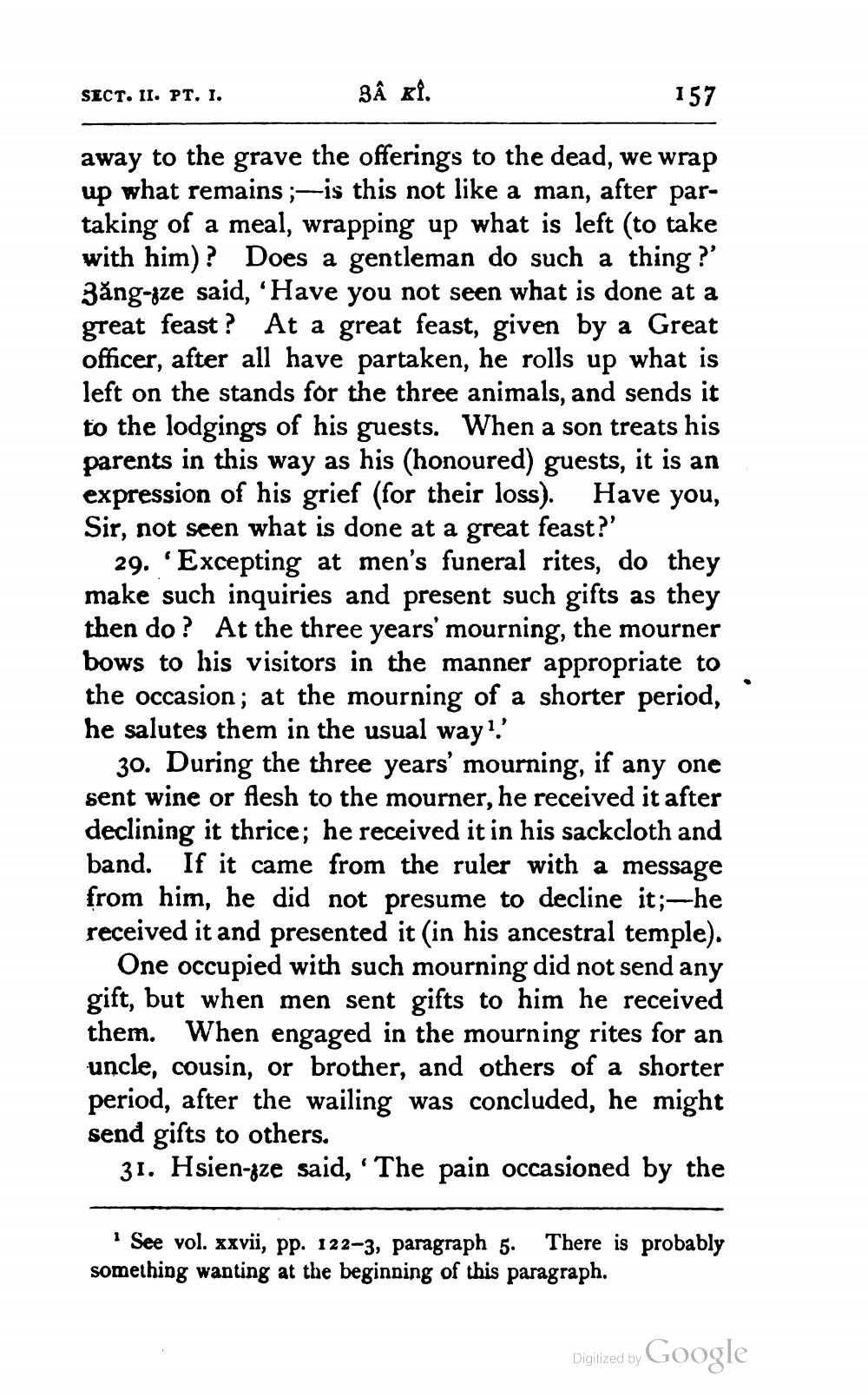________________
SECT. 11. PT. 1.
BÂ ki.
157
away to the grave the offerings to the dead, we wrap up what remains ;-is this not like a man, after partaking of a meal, wrapping up what is left (to take with him)? Does a gentleman do such a thing ?' Zăng-xze said, 'Have you not seen what is done at a great feast? At a great feast, given by a Great officer, after all have partaken, he rolls up what is left on the stands for the three animals, and sends it to the lodgings of his guests. When a son treats his parents in this way as his (honoured) guests, it is an expression of his grief (for their loss). Have you, Sir, not seen what is done at a great feast?'
29. 'Excepting at men's funeral rites, do they make such inquiries and present such gifts as they then do ? At the three years' mourning, the mourner bows to his visitors in the manner appropriate to the occasion; at the mourning of a shorter period, he salutes them in the usual way?'
30. During the three years' mourning, if any one sent wine or Aesh to the mourner, he received it after declining it thrice; he received it in his sackcloth and band. If it came from the ruler with a message from him, he did not presume to decline it;-he received it and presented it (in his ancestral temple).
One occupied with such mourning did not send any gift, but when men sent gifts to him he received them. When engaged in the mourning rites for an uncle, cousin, or brother, and others of a shorter period, after the wailing was concluded, he might send gifts to others.
31. Hsien-gze said, “The pain occasioned by the
See vol. xxvii, pp. 122-3, paragraph 5. There is probably something wanting at the beginning of this paragraph.
Digitized by Google




